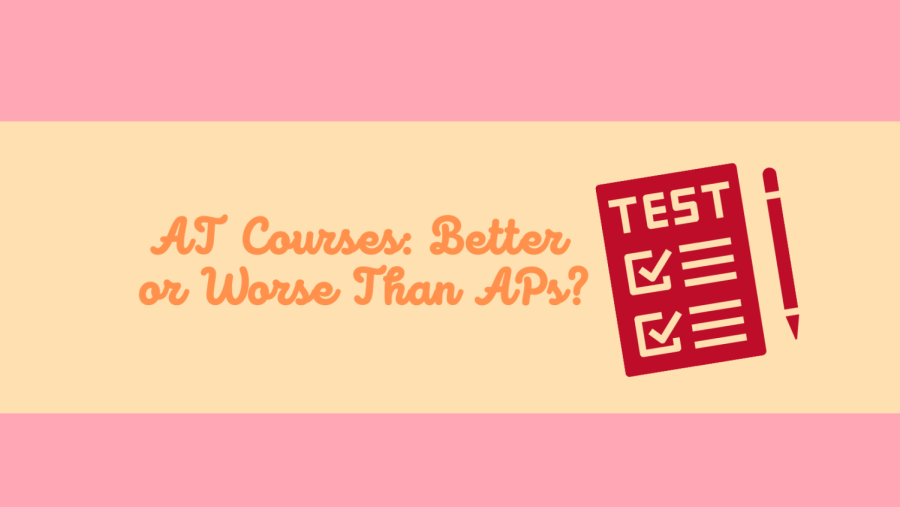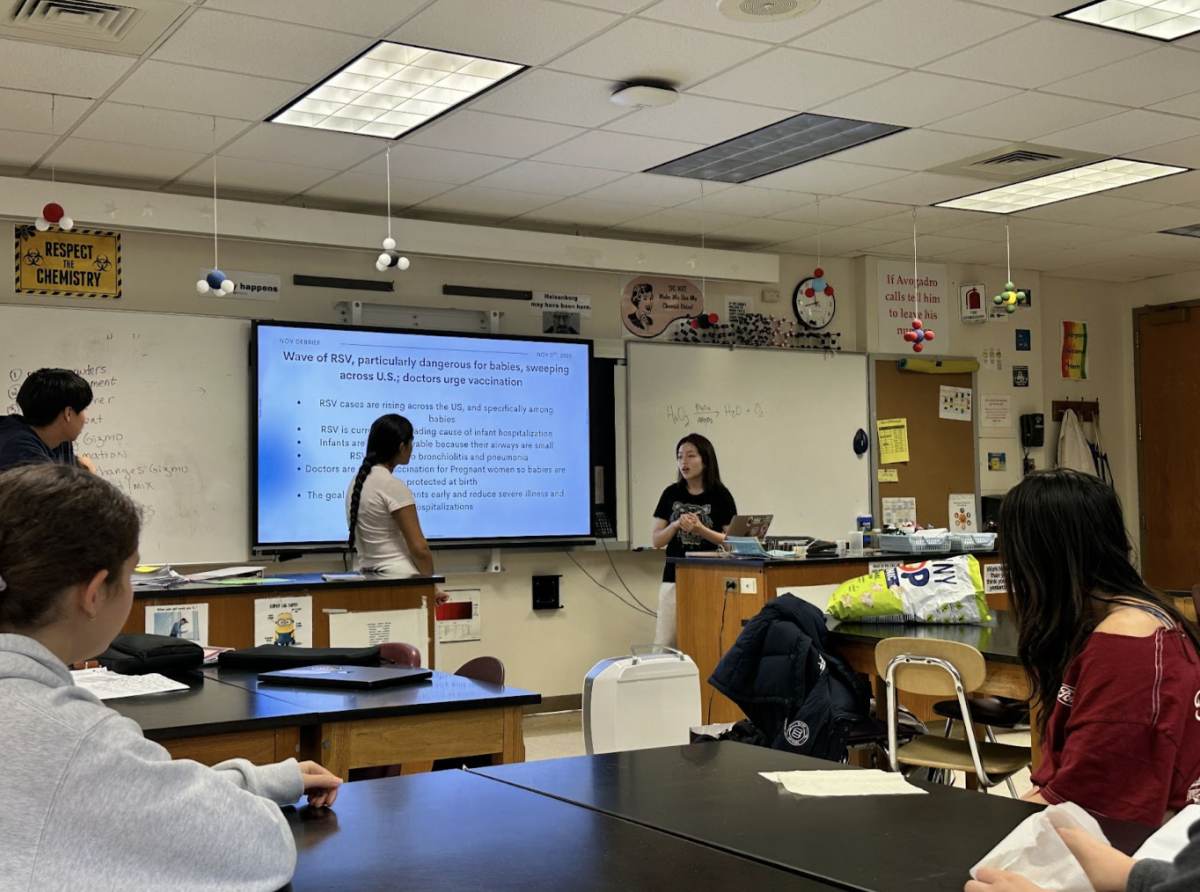AT Courses: Better or Worse Than APs?
October 8, 2021
Between the years of 2007 and 2009, Scarsdale High School transitioned from Advanced Placement (AP) to Advanced Topics (AT) courses. Prior to the change, about 70 percent of the 1,500+ students at SHS took an AP course. In order to increase their chance of acceptance into top schools, many students took five, six, or even more APs. Parents also tended to push their kids to take AP courses, producing more stressed-out students as a result. Such an increased focus on standardized testing forced high school to become a calculated race to compete and score well on the tests, rather than a journey to amass higher knowledge as well as deeper thinking and investigation skills.
AP exams have been enforced with the aim to dispatch a year’s equivalent of college level information to high school students. These Advanced Placement classes adhere to a designated and specified syllabus created by College Board, which ideally confirms that all students across the country are learning the same material. The test, however, does not take into account the different learning styles, various teachers, and socioeconomic status of the students, which may put some at a disadvantage more so than others.
Instead of offering AP courses, Scarsdale offers AT topics, which focus more on learning the material in an enriching way rather than memorizing facts to perform well on a test. Faculty that teach AT courses at Scarsdale High School also have the freedom to create a curriculum that provides a deep dive into the material and is more catered toward a class’ specific interests. In AT psychology, for example, students can voice their opinions on what subjects they’d like the class to cover through surveys and discussions; in other words, they help design the course alongside the teachers, ensuring the class is engaging for both teachers and students alike—something that is not necessarily possible with AP courses. Many Scarsdale AT classes have also replaced a typical final exam with research papers, hands-on models, or robotics projects to, once again, gear education toward a less-anxiety inducing path.
On the contrary, AP classes are taught with an end goal of performing well on the AP tests offered by College Board each spring. AP teachers focus on the tested materials and often ignore what is not traditionally on the test. Accordingly, students must spend the year focused on test preparation with little room accounted for creativity and higher order thinking. The AP Physics (Electricity and Magnetism) teachers often find themselves forced to cover the material at the depth required by the exam and drop substantial physics concepts and theories such as atomic, nuclear, and quantum physics in particular. In English and History courses, students must rush to go through the immense amount of material included on AP tests, preventing them from frequently discussing current events.
There are, however, certainly benefits to taking AP courses. Each year, around 3 million highschool students across the United States take the AP exams in May. For many motivated students, AP exams are a way to distinguish themselves in their college applications. AP courses offer a structured and standardized curriculum, with relatively equal content, while offering academic rigor. Financial aid programs across the country look for SAT/ACT as well as AP scores, which provides additional evidence of academic excellence. If a student from Scarsdale were to enroll in AT’s, they may find themselves having to self-study in order to perform well on an AP test and, as a result, receive college credit. Considering a student cannot obtain college credit without an AP test score, it is understandable why so many schools offer AP courses as opposed to AT courses.
When Scarsdale first replaced AP classes with AT classes, SHS talked with several college admission officers most of whom perceived it as a positive change. Students can still take AP exams in May as they wish without taking the courses. However this decision does negatively impact Scarsdale High School’s ranking, as the New York district’s survey ranking counts AP’s, not AT’s. Furthermore, Scarsdale High School students most-likely would have to self-study if they wish to take AP exams, which can be fairly burdensome. Regardless, it seems that the benefits of AT classes far outweigh the downsides.
“Scarsdale’s AT classes have been quite successful. By and large, because of the nuances, AP exams here may not have much advantage for the college admissions” said Director of Counseling Oren Iosepovici. “Rather, they are more for the purpose of getting credits for college courses later. The admission officers understand SHS curriculum and its rigor,” concluded Iosepovici.


























